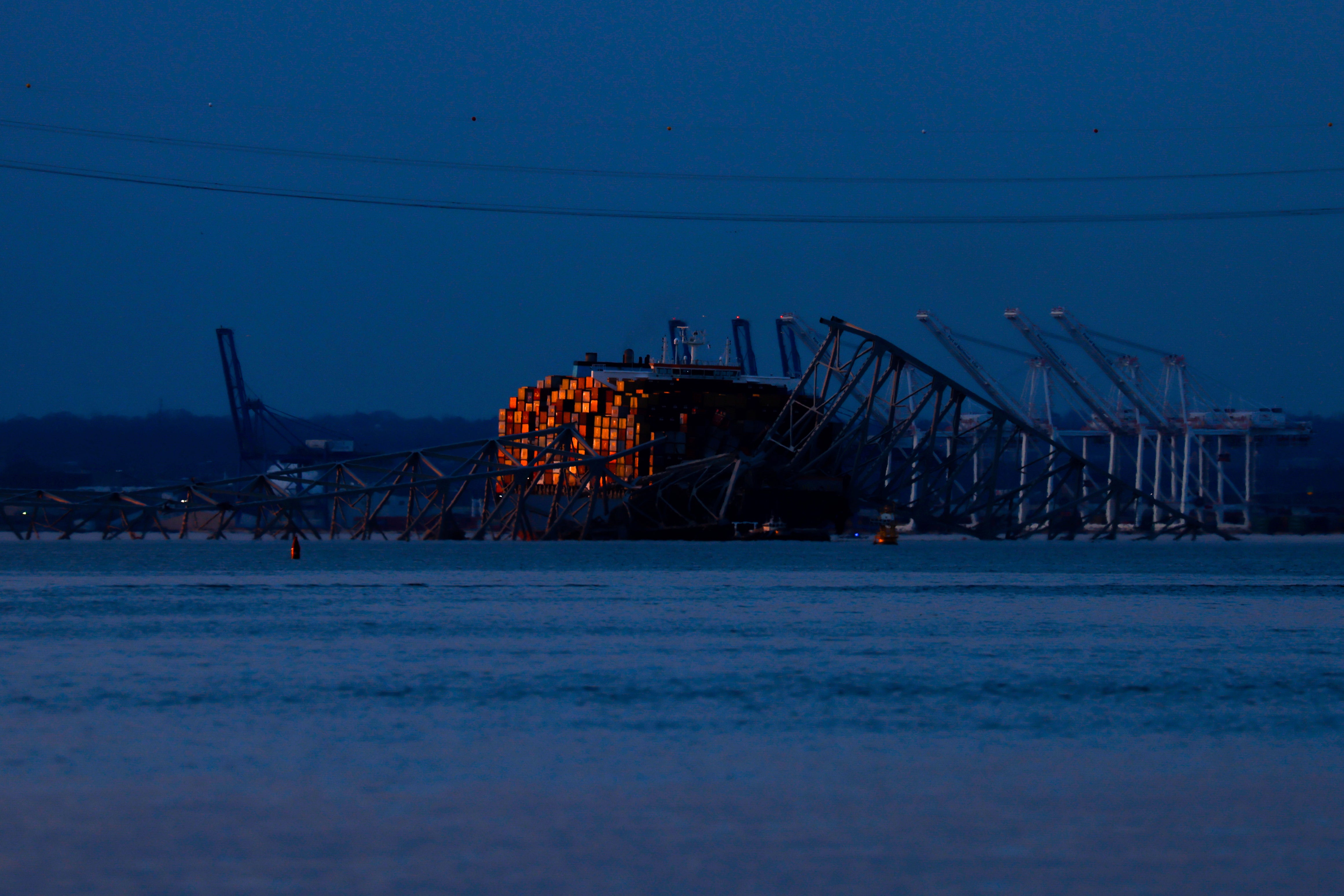Cargo ship's owner and manager seek to limit legal liability for deadly bridge disaster in Baltimore
The owner and manager of a cargo ship that rammed into Baltimore’s Francis Scott Key Bridge before it collapsed are seeking to limit their legal liability for the deadly disaster

The owner and manager of a cargo ship that rammed into Baltimore's Francis Scott Key Bridge before it collapsed last week filed a court petition Monday seeking to limit their legal liability for the deadly disaster.
The companies' “limitation of liability” petition is a routine but important procedure for cases litigated under U.S. maritime law. A federal court in Maryland ultimately decides who is responsible — and how much they owe — for what could become one of the costliest catastrophes of its kind.
Singapore-based Grace Ocean Private Ltd. owns the Dali, the vessel that lost power before it slammed into the bridge early last Tuesday. Synergy Marine Pte Ltd., also based in Singapore, is the ship's manager.
Their joint filing seeks to cap the companies' liability at roughly $43.6 million. It estimates that the vessel itself is valued at up to $90 million and was carrying freight worth over $1.1 million in income for the companies. The estimate also deducts two major expenses: at least $28 million in repair costs and at least $19.5 million in salvage costs.
The companies filed under a pre-Civil War provision of an 1851 maritime law that allows them to seek to limit their liability to the value of the vessel's remains after a casualty. It's a mechanism that has been employed as a defense in many of the most notable maritime disasters, said James Mercante, a New York City-based attorney with over 30 years of experience in maritime law.
“This is the first step in the process,” Mercante said. “Now all claims must be filed in this proceeding.”
A report from credit rating agency Morningstar DBRS predicts the bridge collapse could become the most expensive marine insured loss in history, surpassing the record of about $1.5 billion held by the 2012 shipwreck of the Costa Concordia cruise ship off Italy. Morningstar DBRS estimates total insured losses for the Baltimore disaster could be $2 billion to $4 billion.
Eight people were working on the highway bridge — a 1.6-mile span over the Patapsco River — when it collapsed. Two were rescued. The bodies of two more were recovered. Four remain missing and are presumed dead.
The wreckage closed the Port of Baltimore, a major shipping port, potentially costing the area’s economy hundreds millions of dollars in lost labor income alone over the next month.
Experts say the cost to rebuild the collapsed bridge could be at least $400 million or as much as twice that, though much will depend on the new design.
The amount of money families can generally be awarded for wrongful death claims in maritime law cases is subject to several factors, including how much the person would have likely provided in financial support to their family if they had not died, funeral expenses.
Generally, wrongful death damages may also include things like funeral expenses and the “loss of nurture,” which is essentially the monetary value assigned to whatever more, spiritual or practical guidance the victim would have been able to provide to their children.
___
Associated Press writer Stefanie Dazio in Los Angeles contributed to this report.
Bookmark popover
Removed from bookmarks